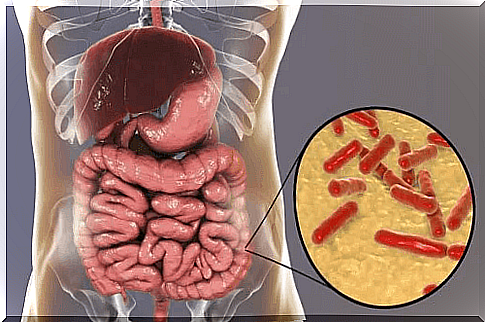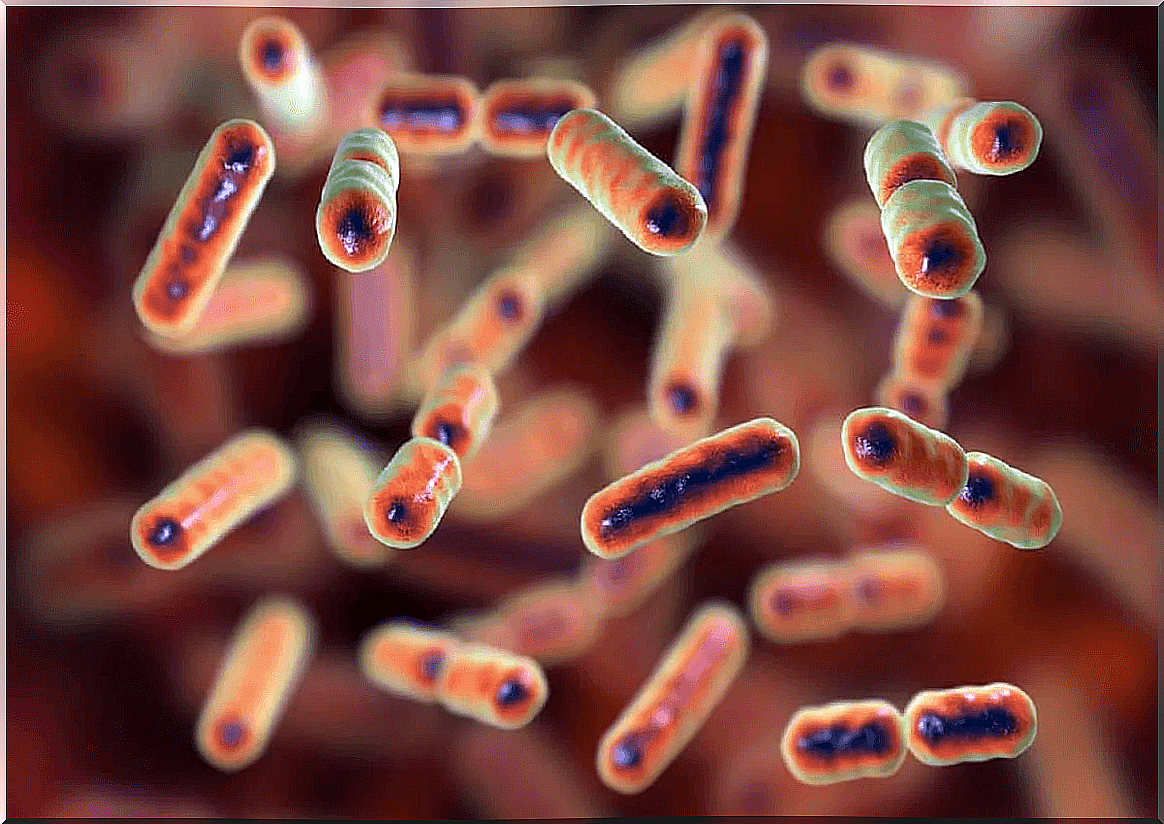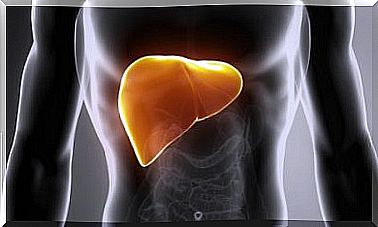How Do I Recognize A Disturbed Intestinal Flora?
Flatulence and slow digestion can be symptoms of an unbalanced microbiota. Here you will find out what you can do to relieve the disturbed intestinal flora and how to recognize microbial imbalances.

Signs such as a bloated stomach for no apparent reason, persistent diarrhea, constipation or a foul-smelling stool can indicate a disturbed intestinal flora.
The microorganisms of the intestinal microbiota are essential for the human body to function properly. Several studies have shown that they support digestion and the immune system, among other things .
Do you know why an imbalance in the gut microbiome can occur? Have you ever wondered what to do when the intestinal flora is out of whack?
Addressing such questions and acting accordingly is essential for both the proper functioning of the intestinal tract and general well-being. That’s why we’re going to explain everything you need to know about this topic here.
What is dysbiosis?
The imbalance of the intestinal flora is called “dysbiosis”. As microbiological studies have shown, this word refers to a normal microbiome that has become unbalanced due to qualitative or quantitative changes in its composition, functioning, distribution or metabolic activities.
There are three types of dysbiosis:
- Loss of bacteria that are beneficial for the functioning of the gastrointestinal tract
- The spread of disease-causing bacteria
- Loss of general bacterial biodiversity
The normal microbiome is the term used to describe all the bacterial microorganisms that colonize different areas of the human body. The bacteria in the gastrointestinal tract are particularly important.
According to the study mentioned above, there are more than 10 14 bacterial cells of more than 1000 different species in the intestine . Bacterioidetes and Firmicutes are the predominant groups.
In a healthy individual , the various bacterial colonies in the intestine are in equilibrium, as they regulate themselves among themselves. In addition, the host’s immune system ensures that normality is maintained.
When this homeostatic balance gets out of hand, either due to external or internal factors, the aforementioned dysbiosis occurs. This creates a number of complications that we will look at in this article.

Why is it so important to ensure that the intestinal flora is intact?
Microbiological studies show that the intestinal microbiome has the following functions, among others: It stimulates the immune system, synthesizes vitamins, inhibits pathogens and digests plant ingredients.
These microorganisms are vital to the proper functioning of the gastrointestinal tract, which is why it is extremely important to keep them balanced.
Disturbed intestinal flora: possible causes
There are several causes that can result in an imbalance in a disturbed intestinal flora. Here are a few examples:
- Using antibiotics to fight bacterial infections can unbalance the microorganisms. It has been proven that ampicillin and amoxicillin, for example, have a negative effect on the composition of the intestinal flora.
- In animal experiments it has been found that stress and anxiety cause changes in the intestinal microbiota over several days. When stressed, the production of intestinal mucus (protective tissue layer) is reduced, which promotes the adhesion of pathogens.
- Other sources point out that diet plays a crucial role in the microbiome. Foods containing sulfates, for example, promote the growth of pathogenic bacteria in the intestinal tract. It is also believed that a diet high in protein can have negative effects.
All of these factors are important in people in normal health. Immunocompromised people or those with associated clinical pictures are also at risk, as their immune system may not properly regulate the growth of pathogenic types of bacteria.
Another factor that also seems to have negative effects on the normal flora is drug, alcohol and tobacco consumption. This is described in detail in an article published in the journal Psychopharmacology .
Disturbed intestinal flora: symptoms
It is not easy to spot a disturbed intestinal flora because many of the obvious symptoms are similar to those of other gastrointestinal diseases. These include the following:
- A bloated stomach and gas for no apparent reason
- Intestinal cramps, stinging in the stomach area and feeling of tightness
- Especially foul smelling stool and gas
- Alternating between constipation and diarrhea
- Greater susceptibility to viral and bacterial infections
In addition, the above studies suggest that there are more serious illnesses that may be related to intestinal dysbiosis. Pathogenic strains such as Escherichia coli, Mycobacterium avium paratuberculosis, or Clostridium difficile appear to be associated with these imbalances.

Disturbed Darflora: what can I do?
If the person with intestinal dysbiosis is not taking antibiotics or has conditions associated with dysbiosis, a change in diet is essential to restore healthy flora. An example of this are probiotics: studies show that they help to increase gastrointestinal well-being.
These usually consist of strains of the bacteria Bifidobacterium and Lactobacillus , natural inhabitants of the intestinal tract. Examples of probiotics include kefir, kombucha, and other foods made through lactic acid fermentation. They can also be taken in tablet form.
Prebiotic foods that encourage bacterial growth are also helpful in restoring damaged flora. Examples of this are foods with fiber and starch. However, it is always a good idea to see your family doctor or nutritionist before making any drastic changes to your diet.
Disturbed intestinal flora: final remark
Unhealthy habits like smoking, drinking, and drug use can alter the gastrointestinal microbiome and cause various related diseases. In addition, an ongoing stressful situation can cause an imbalance in this group of bacteria in the intestine.
It has also been found that the use of antibiotics can lead to dysbiosis, but unfortunately the patient has no control over these types of side effects. No matter how, a healthy lifestyle and the use of probiotics and prebiotics can help maintain or restore gastrointestinal well-being.









